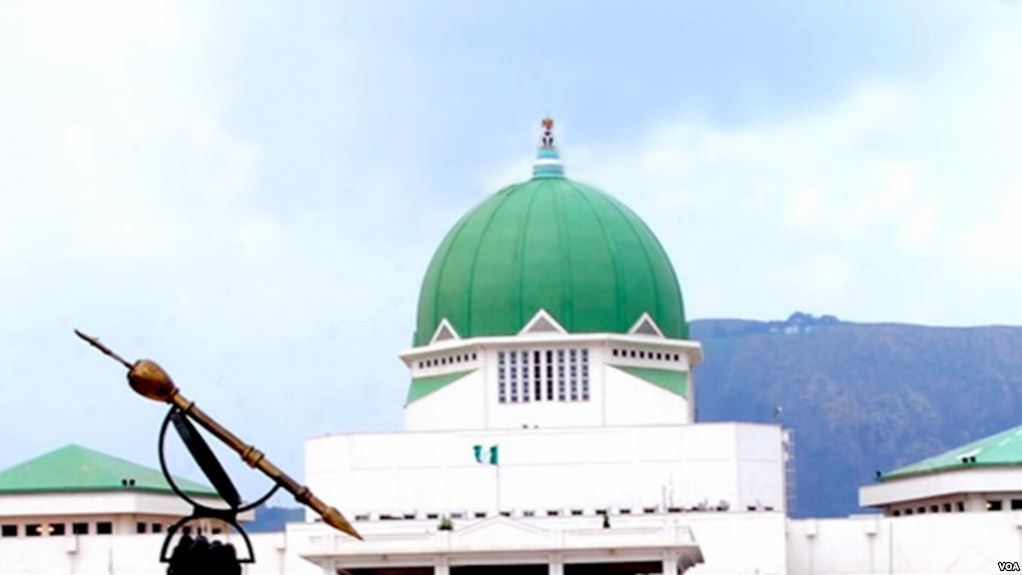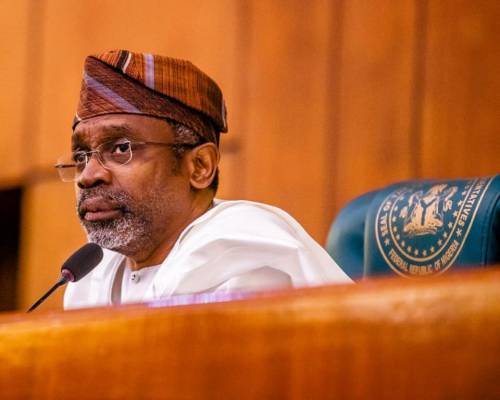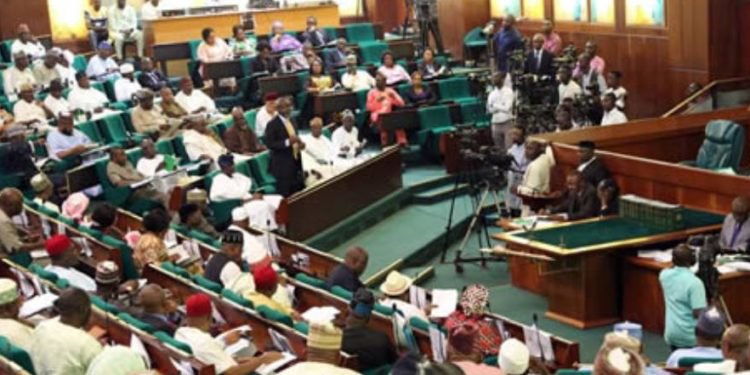By Rep Kingsley Chinda
I should start this analysis by commending the sponsors of the Bill for the idea that there is need to review and update our health laws as it has to do with infectious diseases. What I call the spirit behind the law is very laudable but the letters of the law are very poorly couched or copied and should be rejigged to suit Nigerian realities. The credit still goes to the sponsors of the Bill.
This Bill after the rushed 1st and 2nd reading should be committed to relevant Committees and subjected to rigorous public scrutiny (Public Hearing) for all stakeholders to make an input and a better work returned to the House. If we do otherwise and send it to committee of the whole, we will end up with a bad law that cannot stand the test of the law and time or it will be killed in the Senate.
Let me attempt at considering some specific sections of the Bill.
The Bill is 97% copied from the Singapore Infectious Disease Act 1977 verbatim. Whilst we concede that Statutes and legislations are exempted from the legal burden of the offence of plagiarism, they are however, not exempted from the moral burden of copying a work copiously. The level of reliance on the Singaporean Bill leaves the impression of Parliamentary laziness and the 9th House of Representatives is not that lazy, a lot of industry abound within and has been demonstrated. Again, where Bills are imported, they are adopted to the local circumstances. Singapore was under the reign of a maximum Ruler, Lee Kuan Yew, operating a one-party socialist State. Some of Lee’s famous quotes amongst others are “Between being loved and being feared, I have always believed Machiavelli was right. If nobody is afraid of me, I’m meaningless. “If you can’t force or are unwilling to force your people to follow you, with or without threats, you are not a leader.” This theory of leadership though forward, it will be out of place in our Nigerian setting today.
Thus the Bill is draconian in a multi-party federal system democracy that is practiced in Nigeria. We cannot domesticate the law of another nation. The Singapore Infectious Disease Act 1977 is not an international protocol that we should adopt without changes. Whilst we can borrow the idea of the Bill from Singapore, we must adopt it to local circumstance and bring it in line with existing local Statutes.
The long Title of the Bill is “A BILL FOR AN ACT TO REPEAL THE QUARANTINE ACT CAP. Q2, LAWS OF THE FEDERATION OF NIGERIA, 2004 AND ENACT THE CONTROL OF INFECTIOUS DISEASES BILL, MAKE PROVISIONS RELATING TO QUARANTINE AND MAKE REGULATIONS FOR PREVENTING THE INTRODUCTION INTO AND SPREAD IN NIGERIA OF DANGEROUS INFECTIOUS DISEASES, AND FOR RELATED MATTERS (HB.836)”
A closer look at the content of the Bill reveals that the title of the Bill is deceptive as it purports to regulate “infectious diseases’ whilst it actually goes beyond infectious diseases and regulates diseases of any nature depending on the discretion of the Minister – Section 5(1)(b) of the Bill. The short title of the Bill should actually be Control of Diseases Bill 2020 rather than “Control of Infectious Diseases Bill, 2020” as contained in Section 81 of the Bill.
The powers to administer the Bill is vested on the Director General of Nigeria Centre for Disease Control (NCDC) (DG) under the directive of the Minister. Note that the office of the DG was created by another Act, the Nigerian Center for Diseases Control Act 2018 with powers and functions bestowed on him.
The powers vested on these political appointees is humongous and bound to be abused. More so, they are accountable to their appointor and takes instructions from him and not the Nigerian people.
The NCDC Act that created the office of the DG gave him powers and also gave some powers to the Board of NCDC. Some of the functions of the Board under the NCDC Act are given to the Director under this Bill.
The Bill as stated in paragraphs 3 and 4 above, failed to take cognizance of our local circumstances, consequently, the Bill has some serious constitutional and statutory contradictions. Several sections that are the live wire of the Bill conflict with existing laws and the Constitution.
The Federal System of Government in Nigeria was not considered in the Bill, thus no role for other tiers of government, (States and Local Governments), particularly the States as a federating unit. This is more serious taking cognizance of the fact that Health is an item in the concurrent legislative list in the Constitution.
The Powers of Governors to take steps and come up with Executive Orders in times of heath emergencies contained in the Quarantine Act sought to be repealed were jettisoned. Thus Governors have no role and are at the mercy of the DG NCDC and Minister for health. This is abnormal and will be counter productive.
All Governors today are relying on the Quarantine Act to come up with Executive Orders to manage the COVID-19 peculiar situations in their states. If this power is removed, the DG cannot micro manage all the states in the federation in time of health crises.
The Bill severally and frontally attacked the rights of citizens under Section 4 of the Constitution (Fundamental Human Rights) and the African Charter on Human and Peoples’ Right (Ratification and Enforcement) Act Cap. A9 Laws of the Federation of Nigeria 2004: United Nations Declaration on Human Rights 1948 and International Convention on Civil and Political Rights 1976 which are ratified by Nigeria and so are local legislations.
The Bill conflict with the Environmental Health Officers (Registration ETC) Act 2002. The DG is empowered in S.2 of the Bill to determine who a Health Officer is against the Provision of sections 13(1) and 14 of the Environmental Health Officers Act that outlaws any practice or provision of Health services in Nigeria without certification by the Council – Health Officers are professionals and cannot be picked discretionally by an individual.
The national Programme on immunization Act, Cap. N.71 LFRN 2004, Vol.9. Section 6 of the Act covers some contagious diseases like TB, Whooping Cough etc with an omnibus clause in Section 6(f) which empowers the Minister to cover any other disease he deems fit. These are the same diseases the present Bill seeks to take care of. The Immunization Act is a specific law on immunization whilst the present Bill has immunization as one of the items covered in the Bill.
Nigerian National Health Act 2014 regulates health practice and practitioners in Nigeria, including protection of the fiduciary relationship of Medical Practitioners and their patients.
Section 3 which empowers the President to declare a public emergency and public health emergency zones in the country or any part thereof did not state the method of publishing the declaration. Under S.3(5) of the Bill, the method of publication is left at the discretion of the President and no time frame within which same should be sent to NASS for ratification. It only says “as soon as possible”, this is subject to interpretation of the operators.
Section 6 of the bill provides for compulsory testing based on mere suspicion by the DG. Failure to test at own cost, attracts legal sanctions including a conviction. This provision can and will be abused by power drunk officers without an option of legal challenge to such abuses. There are people whose religion does not permit injections or blood test or transfusion. This could be a breach to the right to freedom of thought, conscience and religion. Section 38 Const.
Section 7 empowers the DG to order postmortem test based on suspicion. No exception was considered and it’s at the discretion of the DG. This could breach the right to freedom of thought, conscience and religion. Section 38 Const.
Section 8 of proposed Bill removes the fiduciary relationship (the duty of confidentiality) between patients and their personal Physician on mere suspicion. The Nigerian Health Act still protects this relationship and is therefore in conflict with this Bill. This can only be reasonable after a test is carried out and the person is confirmed to be infected. A citizen can be subjected to inhumane treatment and denied his right to privacy by publishing his/her medical history without his/her consent and refusal is a crime.
Section12 empowers the DG on mere suspicion to stop a wake keep and prohibit the burial of a deceased by his/her family. This again violates Sections 34 and 38 of the Const. The Citizens right to human dignity and Right to Thought, Conscience and Religion. Burial rites are mostly cultural or religious based. This would be reasonable if it is confirmed that the corpse is infected. Even at that the infected corpse does not need to be present at the wake-keep.
Section13 empowers the DG on mere suspicion to detain a citizen as long as he wishes without an order of a competent Court and he of course cannot be sued even where his suspicion turns out to be wrong afterwards, as S.70 protects the DG and his agents from personal liability. This runs foul of the victim’s fundamental right to liberty (S.35) and movement (S.41). Also note that S. 35 (e) which provides an exception only contemplates those suffering from a disease not “suspected” as provided in the Bill. Thus the Bill tends to amend S.35(e) of the Const. through the back door.
Section 14 again gives the DG power to place a citizen under surveillance on mere suspicion. The worry is that these encroachments on rights of citizens are done on mere suspicion and since no personal liability is incurred for any default, the DG or his Rep could be careless. This contravenes S. 37 (Right to private and family life).
Section 15 of the bill empowers the DG by only issuing a notice to take over a citizen’s property and declare it an isolation center without the consent and permission of the owner. This provision is subject to serious abuses as perceived political enemies and or opposition party members can be easily abused on the guise that their property is declared an isolation Center without recourse to a Court of law. It runs foul of S. 44 of the Const (Right against compulsory acquisition of property). Again the section conflict with rights of Governors over lands in their States under Land Use Act as property can now be acquired in a state without the Governor’s consent.
Section16 of the proposed bill is a very potent instrument against the religious and social organizations. Thus, if in the opinion of the DG any building is deemed overcrowded he can make an order dispersing the crowd and anybody who goes in commits an offence. How do you opine or conclude that the gathering is likely to expose occupants to infectious disease.
Once a decision is taken, it becomes effective regardless of any protest or appeal. The appeal is to the Minister whose decision is final and he is an interested party. Thus he is a final arbiter in his own matter. This is again violating the Citizens right to fair hearing, S. 36(2)(a) and (b).
The Bill in section 19 gives the DG power to stop any meeting or gathering as he deems fit on the ground that such activity is likely to increase the spread of infectious disease for 14 days’ renewable thereafter. The concern is the exercise of excessive discretion which leads to abuse. Sections 35 and 40 Const (Personal Liberty and Right to peaceful assembly and association) are breached by this provision.
Section 20. Here talks about a carrier unlike other sections where a suspect is made to suffer.
Section 24 empowers Enforcement Officer to get order from a Court (Magistrate) to destroy a building where infectious disease occurred. This is too draconian as fumigation or disinfection of such building will sanitize it rather than destruction. Also note that the owner has no claim against the Officer under S.70 of the Bill.
Section 27 also allows the DG to exempt a vessel coming from an infected area from being deemed to be infected. There are no grounds for the DG to arrive at that conclusion, it is left to his discretion.
Section 30 also gives the DG the discretion to determine any vaccine that will be compulsory for citizens to take before they can travel out of Nigeria. Note that vaccines are made from animal genes and it could be one made from a prohibited animal, amongst Moslem and some Christian sects swine (haram) and you will be compelled to take it, else you can’t travel out of the country or come into the country. This is most unconventional, what is obtainable is that countries, depending on their peculiarities request that visitors must be vaccinated against certain diseases so if you are travelling to such countries, it’s one of the requirement but not to impose it on citizens that you must be vaccinated before travelling out of the country.
Sections 46 and 47 of the Bill provide for compulsory vaccination of children and adults with some specified vaccine. This should not be compulsory as in some climes, there are incentives given to encourage vaccination. There must also be an exception on health or religious ground. Recall the Pfizer experience in Kano where vaccine turned a killer injection and South Africa where HIV vaccines was deliberately administered on blacks. Vaccines sometimes have turned out to be dangerous. To compel one to take a vaccine made of stuff that is against his belief is a breach of S. 38 of the Const (Freedom of thought, conscience and religion).
More so under S.47(4) of the Bill, the DG is required to give notice of the order for vaccination as none compliance is a crime under section 51, yet he still has discretion on the method of notice. Thus he could paste the order for vaccination on his office notice board and if you fail to vaccinate within the prescribed time, you commit an offence.
Section 49 which provides exception to the vaccination only allowed medical grounds without the very important religious ground and the exemption is also at the discretion of the DG. He determines who will be exempted or not and issues exemption certificate.
Section 53 provides for fees for vaccination which the Bill makes compulsory. If compulsory vaccination is not free to all, it should at least be free to the vulnerable class as poverty is not defense under 51. Someone who cannot afford the vaccination commits an offence as poverty will not be an excuse.
Section 54 empowers the DG to enter a premises at anytime and without warrant and with such force as may be necessary, note, the Bill did not even provide for use of “reasonable force” to enter, search or cease any book or material suspected to be connected to disease out break. The force that is necessary is determined by the Enforcement Officers.
In Sections 55, 56 and 57, the Bill authorizes the entry, search, arrest, seizure and disposal of any premises, thing, vehicle, document or person as the case may be without warrant based on mere suspicion and private opinion of the DG of NCDC, Health Officers and Police Officers. These Sections are wrong on every level, because they give the Police Officers unfettered powers to cease, arrest and detain based on suspicion and without proof of guilt thereby taking away this all important legal rule that an accused is deemed innocent until proved guilty. Under the Bill, the reverse is the case a suspect is deemed guilty until he proves otherwise. The DG’s power under Section 56(1) to seize information considered relevant to public health in his opinion may be abused to interfere with the constitutional right to freedom of speech and press in Nigeria.
The Bill also allows the executive officers take extra-judicial decisions to the detriments of citizen’s constitutional rights to freedom of movement and dignity of human person. This can be seen in Section 57, (7-8) of the Bill. Clearly Subsection 8 of the Bill gives meaning to the measures referred to in Subsection 7 which includes the entry into a place without warrant and the use of such force as maybe necessary. The question now is what force can be used by the police officers that will be deemed necessary? This is unconstitutional as section 34 of the 1999 Constitution as amended clearly stipulates that no person shall be subjected to torture, inhuman and degrading treatment.
Section 62 is mere repetitive and surplus age as it is the primary function of Police to execute laws. It’s not necessary to state that the “Inspector General of Police shall provide such Police assistance as may be necessary to carryout any of the provisions of this Act”.
Section 64, the reference is wrong as it should be S. 63 instead of 64.
The immunity provided in Section 70 of the Bill is unconstitutional because this effectively ousts the jurisdiction of the Court to hear Human Rights abuse claims, as the Bill provides that no liability shall lie personally be against the DG, health officer and police officers who does anything in the execution of the Act. Human rights abuses are usually personal.
General remarks on the defense that Section 45 of the 1999 Constitution as amended allows derogation from certain fundamental rights pursuant to a law made for the purpose of securing public health can not hold water in all the abuses or Fundamental Human Rights derogations in this Bill.
A). The provisions of the Bill are so wide and not reasonably justifiable in a democratic society having been fashioned after a single party communist State.
The provisions of Section 45 of the 1999 Constitution as amended may not be sufficient to save the Bill from being declared unconstitutional if passed in its present state and tested in a court of law.
B). The exception in Section 45 does not apply to infractions of Sections 42, 43 and 44 of the Constitution (Freedom against discrimination: Right to acquire private property and Right against compulsory acquisition of property). Thus all the sections of the Bill on compulsory acquisition of property are outside the exemption
C). By Section 45(2) derogation of Sections 33 (Right to life) and 35 (Right to personal liberty) are allowed in an Act only during “emergency period”. This is only when the President under Section 305 of the Constitution declares a state of emergency. Even under such emergency period, the measures must be “reasonably justifiable in dealing with the emergency situation”. Even in a state of emergency, is it reasonably justifiable to demolish a property for the singular reason that an infected person was therein?
D). The exception under Section 45 of the Constitution applies only during emergency period and so reliance on the section to breach the liberty of citizens is unconstitutional.
REP. O. K. CHINDA
MEMBER REPRESENTING OBIO-AKPOR FED. CONSTITUENCY, RIVERS STATE




